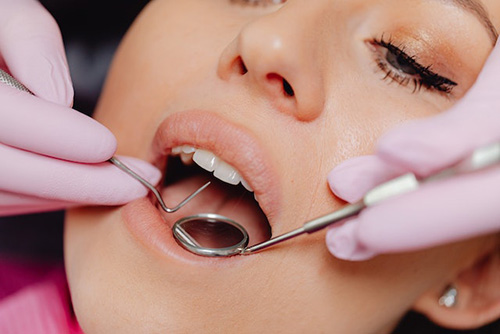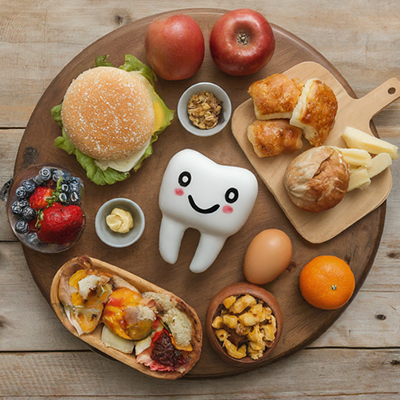Contents
Tooth extraction is a typical dental operation that many individuals may have to undergo at some time. Whether wisdom teeth or a broken or rotting tooth is extracted, post-operative care is critical for a quick and painless recovery. “When can I eat after tooth extraction?” is one of the most often asked questions.
Your gums and jaw may be sore after tooth removal, and the surgical site may need time to recover. Eating soft meals and not straining the healing area unnecessarily is critical during this time.
When Can I Eat After Tooth Extraction: What to Eat

Soups: Those with clear broths, such as chicken or vegetable, are an excellent choice. They give essential nutrients while also calming your throat and gums. Allow the soup to cool somewhat before eating to prevent scorching your tongue.
Yogurt: Select plain, smooth yogurt free of harsh fruit fragments or seeds. Yogurt is soft and high in probiotics, which may help digestion and general health.
Applesauce: Choose smooth applesauce with no bits or pieces. Applesauce is a moderate, healthy, and flavorful food after teeth extraction.
Mashed Potatoes: Creamy mashed potatoes are simple to digest and high in carbs. Prepare them with butter or milk to enhance flavor and moisture.
Pudding or Jello: These pastries need little chewing and are easy on the palate. They might also be a wonderful treat when you’re recuperating.
Avoid Crunchy, Hard, and Spicy Foods
While fueling your body throughout the healing process is essential, some foods should be avoided to avoid problems and pain:
Crunchy Snacks: Foods such as chips, nuts, and hard candies should be avoided since they might irritate the surgery site and disrupt the blood clot, which is necessary for sound healing.
Hard or Tough Meats: Avoid rough foods like steak and pork chops. Instead, choose softer, more sensitive alternatives like chicken or fish.
Spicy and Acidic Foods: Because spicy meals, citrus fruits, and tomato-based sauces might cause irritation and pain, it’s better to avoid them during the early recuperation phase.
When Can You Smoke After Tooth Extraction?
Smoking might harm the healing process following tooth extraction. Here’s why you should avoid it and when it’s safe to restart:
Avoid smoking for at Least 48 to 72 Hours: Smoking should be avoided for at least the first 48 to 72 hours after a tooth extraction. The surgical site is sensitive at this time, and smoking might introduce toxic substances that delay recovery.
More prolonged Abstinence is Recommended: While some may be tempted to start smoking after a few days, abstaining for the healing phase usually lasts several weeks. Smoking slows recovery and increases the chance of problems such as infection or developing dry sockets, a painful condition.
If you smoke, now is an excellent time to think about stopping or utilizing nicotine replacement therapy under the supervision of a healthcare expert to assist your recovery and reduce negative consequences.
Extracted Tooth Healing
Here are some additional care guidelines to remember following tooth extraction to ensure a healthy recovery:
When can I eat after tooth extraction?: Follow Your Dentist’s Instructions

Your dentist will provide you with specific recommendations for post-extraction care. These instructions may include when to take recommended drugs, how to clean your mouth, and what to avoid. For the most significant results, strictly follow these rules.
When can I eat after tooth extraction?: Gentle Oral Hygiene
Maintaining proper oral hygiene throughout your rehabilitation is critical. While it is essential to keep your mouth clean, you should also be cautious around the extraction site. Brush your teeth as directed by your dentist, avoiding the surgery region to avoid interfering with the healing process. Warm salt water rinses may help keep the area clean and lower the chance of infection.
When can I eat after tooth extraction?: Pain Management
It is usual to feel some soreness after a tooth extraction. This discomfort may be managed with over-the-counter pain medicines or prescription drugs from your dentist. If the discomfort continues or worsens, take the prescribed dose and visit your dentist.
When can I eat after tooth extraction?: Avoid Strenuous Activities
Rest is critical for recovery. Avoid extreme physical movement for a few days after the surgery to enable your body to heal without undue stress.
When can I eat after tooth extraction?: Watch for Complications
Keep a look out for any indicators of difficulties throughout your rehabilitation. These might include:
Infection: Contact your dentist right away if you observe any increase in discomfort, edema, or pus around the extraction site.
Excessive Bleeding: Although some bleeding is typical following extraction, contact your dentist if it continues or becomes excessive.

Dry Socket: Dry socket symptoms include intense discomfort, foul breath, and an awful taste in your mouth. Seek quick dental treatment if you feel you have a dry socket.
Understanding when and what to consume after a tooth extraction, the need to avoid smoking, and adequate post-extraction care are critical for a complete recovery. You can guarantee a smooth and rapid recovery by following your dentist’s advice, maintaining proper dental hygiene, and being patient throughout the healing process. This will enable you to return to your usual diet and enjoy a healthy smile again.
DISCLAIMER: All content on this website is presented solely for educational and informational objectives. Do not rely on the information provided as a replacement for advice, diagnosis, or treatment from a qualified medical expert. If you are pregnant, nursing, or have any preexisting medical concerns, talk to your doctor before using any herbal or natural medicines.
References
- Ashfield Family Dental: https://www.ashfieldfamilydental.com.au/food-to-eat-after-tooth-extraction/
- Greenville Family Dentistry: https://greenvillefamilydentistrysc.com/what-to-eat-after-tooth-extraction/
